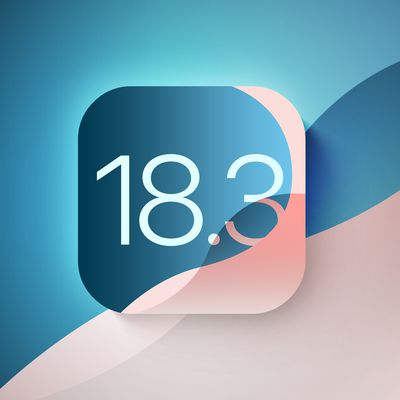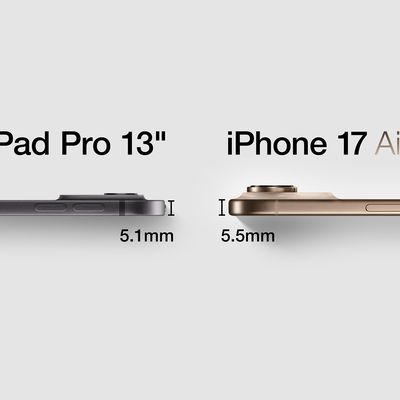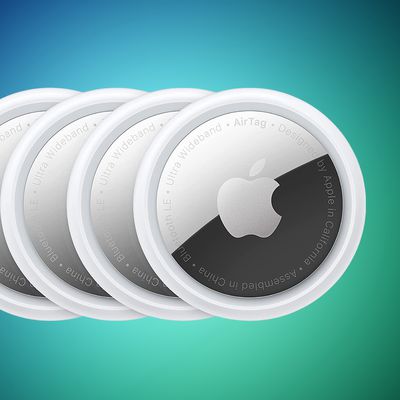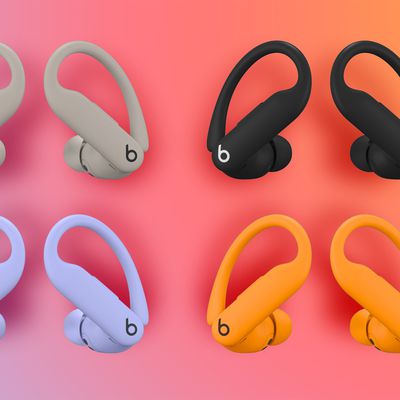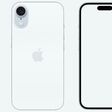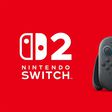MacRumors will be providing live coverage of Apple CEO Tim Cook's interview with Walt Mossberg and Kara Swisher at D11: All Things Digital this evening in Rancho Palos Verdes, California. The interview begins at 6:00 PM Pacific Time / 9:00 PM Eastern Time. Tonight's session marks Cook's second consecutive appearance at D and should offer some insight into Apple's business, although Cook is extremely unlikely to make any major announcements.
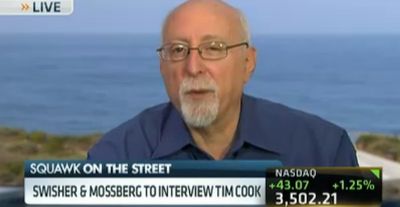
Cook's interview will not be streamed live, but we will be updating this post live with full coverage of the session and videos of conference interviews have traditionally been available for viewing soon after the sessions.
The Verge and Engadget will be providing their usual text and high-quality photos live from the event.
Mossberg and Swisher appeared on CNBC's Squawk on the Street earlier today to provide a preview of the session.
Live Updates
- Attendees are in their seats and awaiting the arrival of Cook, Mossberg, and Swisher on stage.
- News Corp's Raju Narisetti on stage welcoming attendees.
- Jokes about Cook having warmed up for today's interview by testifying in last week's Senate hearing.
- Mossberg and Swisher take the stage. Wearing odd glasses, then starting with a gag about Yahoo having bought News Corp.
- Tim Cook takes the stage.
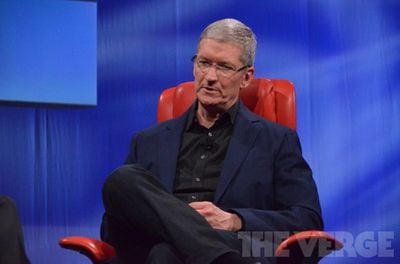
Walt: A lot has happened in the last year...Samsung and Android have grown, stock is down. Sense that Apple has lost its cool. Is Apple in trouble?
Tim: Absolutely not. We're a product company and we think about products. Restates some sales numbers, customer satisfaction and usage ratings. 59% share of web usage. I feel pretty good. Unprecedented number of new products coming out of December of last year.
Kara: But still, you have competent rivals now, and Wall Street is sensitive to this.
Tim: We've always had competent rivals. Microsoft, Dell, etc. But we've always suited up and fought. I don't see that different today. We always focus on making the best products.
Kara: So outside perception doesn't bother you?
Tim: If you look at the stock, it's been frustrating...for investors and us. But this isn't unprecedented. Having been around awhile, you see many cycles. What we have to do is focus on products. If we make great products that enrich people's lives, the rest just happens.
Walt: So let's talk products. Apple is known as a company capable of changing the game. It's been awhile though...iPad mini was a good move, but not game-changing.
Tim: It wasn't a new category.
Walt: You need hits. It's been awhile. Are you still that company?
Tim: Yes, we're still that company. Have some incredible plans we've been working on for a while. Incredible ideas. Same culture that brought you the iPhone, iPad, iPod, and some who brought you the Mac...still here.
Kara: You talked about television last year. Where is that project now?
Tim: We're still playing in TV with Apple TV. We've now sold over 13 million, half of those in the last year. It's been good from a learning point of view for Apple. We think a lot about the TV experience can be better. We answered some of those with Apple TV, but not all, and we're still working on that.
Kara: But Steve Jobs talked about dramatic change. Apple TV is the same thing others do. And part of that is dealing with Hollywood.
Walt: So are they holding it up?
Tim: I don't want to go into detail, but it continues to be an area of great interest for us. The product and relationships we've built provide a lot more knowledge than we would have otherwise. And popularity has been larger than we thought, and we aren't marketing it.
Kara: So what are you going to do about it?
Tim: I don't want to answer that question.
Kara: Is there a grand vision?
Tim: There is.
Walt: Is it so interesting that you'll do something this year?
Tim: I'll make you a deal. You'll be the first person to know.
Kara: So what's your take on Google Glass?
Tim: There are some positives. Likely to appeal to certain markets. Hard to see broad appeal though. Wearables are incredibly interesting...it could be a profound area.
Walt: So you're interested in TV and incredibly interested in wearables.
Tim: Luckily, I can be interested in more than one thing.
Walt: Are wearables part of the post-PC era that goes beyond fitness bracelets?
Tim: Yes, I think so. I wear a FuelBand...Nike did a great job. It's integrated well with iOS. There are lots of wearables, but of the ones doing more than one thing, I haven't seen anything great out there. Nothing that will convince a kid that's never worn glasses or a band to wear one. Or I haven't seen it...so lots of things to solve here. The area is ripe for exploration, and it's ripe for us to get excited about. Lots of companies will be in this space.
Walt: Will Apple be one of them?
Tim: I don't want to answer that one. But it could be another branch of the tree.
Kara: So...glasses, clothing. Where are you interested?
Tim: I'm interested in a great product. I wear glasses because I have to. People generally want glasses to reflect their fashion, style, etc. So this is difficult from a mainstream point of view. I think the wrist is natural. I think there are other things in this space that could be interesting. Sensors are exploding. It will become clearer over time.
Walt: Want to talk about Android. You started the modern smartphone movement, and now Android swamps you in unit share and carriers. How do you feel about that? It's happened pretty quickly.
Tim: Do I look at it? Of course...I don't have my head stuck in the sand. But winning has never been about having the most for us. Arguably we make the best PC, but not the most. We make the best music player, and did wind up making the most, but we didn't initially. We make the best tablet, and we make the most. We make the best phone, but we don't make the most. To assess the health of a company, you need to look at a lot of measurements...usage, for example. iPad share is in the 80s. Twice as many e-commerce transactions on iPad as on all Android devices combined...tablets plus phones.
Walt: So what's your theory? People are buying Android devices and putting them in drawers?
Tim: Globally, I think there are a lot of "smartphones" that we'd consider feature phones, and the users use them like feature phones. I think you've got some tablets where buyers find the experience isn't very good and they aren't used much. The iPad has changed the game...people don't say that about Android tablets. No matter the business, ultimately the customer is the judge. iPad is tops in customer satisfaction. That's what we're about...enriching lives. Not making the most.
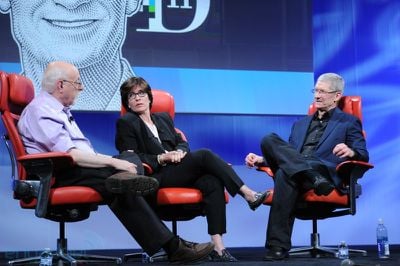
Walt: Let's talk iPhone and iPad...when are you changing it up?
Tim: What's new, what's coming, what's next, when is it coming. I'm not going to answer those, but we have a developer conference in less than two weeks, and we'll be rolling out the future of iOS and OS X. We're all super excited to do that. We owe the world to these developers...incredible quantity and quality of apps. We have a substantial lead, and customer satisfaction validates that.
Kara: So talk to us about the new iOS.
Tim: Remember what it was like on Christmas Eve?
Kara: No, we opened our presents on Christmas Eve.
Walt: And I'm Jewish. But this is what Jony Ive has been working on?
Tim: Yes. Last fall we changed things up, to really ramp up our innovation. The key in the post-PC era is to have incredible hardware, software, and services, and to combine them so you can't tell what's what. The magic is at the intersection. So we amped it up. We recognized Jony's contributions to the look and feel of Apple over the years, and that he could do it for software too.
Kara: You mentioned collaboration. Can you talk a bit about your leadership style? You removed Scott Forstall, who had power under Steve...was he not collaborative?
Tim: I don't want to talk about anyone in particular except for those who are there. The whole concept was to tighten groups even more, so we could spend more time finding the magic at the intersection. Now seven months later, it's been an incredible change. Craig [Federighi] is running iOS and OS X, which has been fantastic. Eddy [Cue] is focused on services.
Kara: So what kind of leader are you? You changed Steve's system.
Tim: I always ask what's in Apple's best interest. I never like to talk about myself. I want others to describe me.
Kara: How are you different than Steve?
Tim: In a ton of different ways. But in the most important ways, we're the same. Keeping the culture of Apple...that's the most important.
Walt: Product strategy time. Steve joked about the iPod that it was good to finally have over 5% share with a product, then expanded to multiple lines. In one instance, you killed off the mini and introduced the nano...wound up with a whole range of iPods. You haven't done that with the iPhone or really the iPad yet.
Tim: We haven't so far. That doesn't shut out the future. It takes a lot of hard work to really do a phone when you manage hardware and software and services. We've focused on doing that right. We haven't been focused on doing multiple lines. Think about the iPod...the iPod shuffle didn't have the same functionality as the other products. It was a really good product, but played a different role. The mini played a different role than the classic did. People said the mini wouldn't sell, but it proved people wanted lighter, thinner, smaller. These products all serve a different person, different type, different need. For the phone, that is the question. Are we now at a point where we need to do that?
Walt: Some people like a lot bigger screens. Then some like devices between phones and tablets, that operate with a stylus. Are those concepts different enough?
Tim: A large screen today comes with a lot of tradeoffs. Customers are looking at size, but they're also looking at "do photos show the right color?" White balance, reflectivity, battery life, longevity...all very important. Our customers want us to weigh those and come out with a decision. At this point we think the Retina display is the best. In a hypothetical world where tradeoffs don't exist, screen size would be a differentiation.
Kara: Let's talk about taxes.
Tim: We felt like it was an opportunity. We came in with a proposal...we said we're not here asking for tax breaks, but we think there should be revenue neutral comprehensive reform. For multi-nationals, we need simplicity. Gut the code...it's 7,500 pages. Our tax return is two feet high. We think we should bring all offshore profits back to the U.S.
Walt: To average people, these look like gimmicks. I understand you're being sincere...tax code is very convoluted, but that's because lobbyists have lobbied to make it complicated, and that allows companies to pay less.
Tim: Congress has Band-Aided the tax issue due to lobbyists, and it's time to trash it and restart. We pay $6 billion, and that's the highest in the U.S. We're not saying we should pay less. We may wind up paying more. But we'd have unlimited ability to pull our capital back home. Some people think we have a special deal with the Irish government with a 2% tax rate. We don't have that. The basic debate is whether for a company like Apple that develops things in the U.S. but sells them around the world, should all of profits accrue to the U.S. and be taxed in the U.S. Apple has divisions around the world with their own profit and loss statements, and the IRS has no issue with that. If everything developed here will be taxed here on worldwide profits, I worry about where development will be. We're fortunate that we don't have to make an economic decision, but for the many companies that do, this would not be good for U.S. jobs. Want to make sure people are thinking through the logical next steps.
Walt: So Congress asked you tough questions, then started a love fest. Was that surprising?
Tim: I wouldn't call it a love fest. In a witness chair, you don't have that feeling. But was great to be a part of the process and to be able to tell our story. I hope it helps with the reform process.
Walt: Remember when you were a struggling company and didn't get much attention from governments. Now everybody's looking at you...antitrust, the e-book case. Lots of government agencies. What's going on?
Tim: When you get larger, you get more attention. It comes with the territory. We're doing incredible work in the environment for example. We've been focused on that for a long time...eliminated toxins from all of our products, running data centers on 100% renewable energy, largest solar farm of any non-utility. Lisa Jackson is joining Apple...she recently left the EPA and will be coordinating efforts across the company. She'll be reporting to me.
Walt: But you don't feel like a target?
Tim: When you're large, they're looking at you. With the tax thing, I don't see anything different about Apple from the others.
Kara: Is Apple held to a higher standard?
Tim: I love that...we all hold Apple to a higher standard. The e-book case is bizarre. We refuse to sign a settlement that says we did something we didn't do, so we're going to fight it. The environment, labor rights, Product RED...things like that we're going to push.
Kara: Let's talk about your money...your piles and piles of money. Why doesn't Apple do anything with it?
Tim: In prior years, we acquired about six companies per year. This year, we've already acquired nine companies. We're not going to announce them all...only the ones we have to!
Walt: Are you thinking about big acquisitions?
Tim: We're not currently looking at a big one, but we're not opposed to doing that. The key is whether it will help us make a great product. And would the culture fit.
Kara: What are you missing? Social?
Tim: We do some social things...iMessage, Game Center. We don't have a social network, but we work with both Facebook and Twitter. Never felt like we had to own a social network. But we're not afraid of large acqusitions.
Walt: Let's talk about control...open vs. closed. Facebook did Facebook Home, which hasn't done well. I understand they talked to you about it, and Apple wouldn't let anyone take over the lock screen. Your keyboard, recognition, predictive typing, etc. hasn't kept up with Android. They allow others to make that technology. Have you given thought to a little less control?
Tim: Of course. In general, you'll see us opening up more APIs in the future, but not to the degree where customers are at risk of bad experiences. Always a fine line, or maybe not so fine. The customer pays us to make choices on their behalf. But you'll see us open up more.
Walt: So you'll let third parties do some features?
Tim: Yes.
Q&A
Q: How important is mobile advertising for Apple?
A: We got into it to make money for developers, not for us. It's still important...we want developers to make money. In March, iOS developers were drawing three times more than on Android. If we can help in advertising, I'm interested in that. Today, it's not large enough to consider "core".
Q: Should Apple branch out to other platforms (Android, Windows) with iCloud?
A: We have no religious issue with porting Apple apps to Android...if it made sense, we'd do it. Same philosophy with iCloud. Would it make sense? It doesn't today.
Q: When is the right age for a kid to acquire an iPhone?
A: Parenting is key. I like kids to learn young, but that experience should be curated by the parent. You obviously have to monitor the time. Technology in and of itself isn't bad for youth.
Q: Best products have great services, and Google is running circles around you with search, maps, etc. What services are coming to help keep people on iOS?
A: iMessage is an interesting service...we deliver 2 billion messages per day. iTunes delivering incredible content. FaceTime is used tremendously. But we're making tons of adjustments in services...the magic is where hardware, software, and services meet.
Q from Kara: Did Apple bid on Waze?
A: No, we did not.
Q: Question on product launch strategy.
A: We release products when they're ready. We believe in the element of surprise, and think our customers love surprises.
Q: What's going on with maps?
A: It's very important...one reason why we're investing as much as we are. Mapping is complex, and not just underlying data, but things like POIs and other pieces. We've made many, many improvements.
Q: Is Apple Maps fixed?
A: We screwed up there. Things are greatly improved, and we're putting a lot of bright people on it. Still work to do.
Q: Does Apple need to own more content?
A: No. I've never believed we need to own content, just have access. We don't have the skill to produce and direct. iTunes is still growing, but there are also other services that allow consumers to access content without owning it.
Q: Lots of patent litigation, but hasn't accomplished anything. You want competitors to make their own stuff, and Samsung is now differentiated from you. What's the end game?
A: On the plus side, not just for Apple but for the industry, we got the standards-essential patent issue largely solved. Google and Samsung sued us with standards-essential patents. Largely the world has said this isn't right, and it's an abuse. Not just for Apple.
Q: But you sued Samsung first. What do you want from them?
A: Well, I'm not negotiating this evening. In general, I don't like lawsuits any more than I did last year. But I don't want copying. This is about values at the end of the day.
Q: On the Mac, iLife was a differentiator. Is it important to have something similar for iOS?
A: On the iPad, productivity has been very key. Some were concerned it would be consumption-only, but it isn't. We got iWork on there, and Pages is the most popular paid app of all time on iPad. We have GarageBand, iMovie, etc. We've tried to put balance on content creation. You'll continue to see some cool things there.
- End of interview





